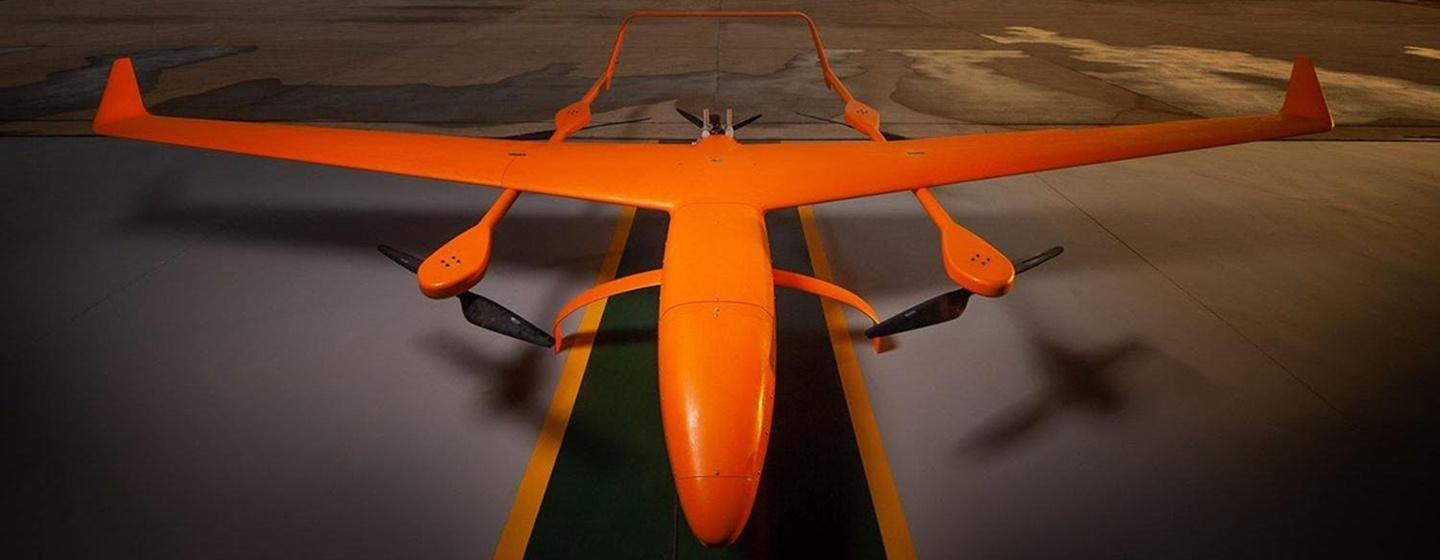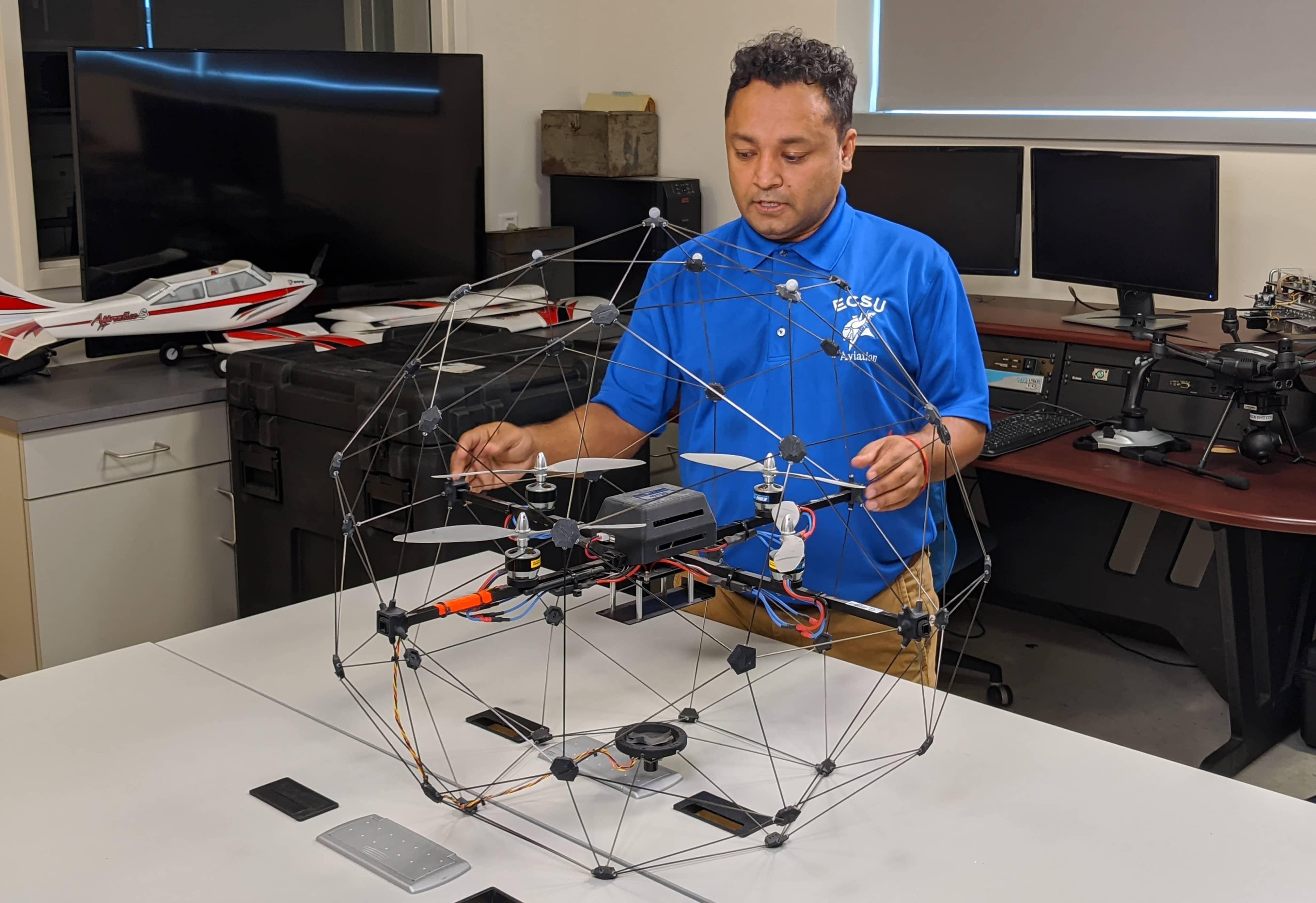Elizabeth City State University Developing ‘Super Drone’ to Fight COVID-19


The COVID-19 pandemic has exposed some serious shortcomings in the nation’s health care system. One of those challenges is delivering critical medical supplies to distant and hard to reach communities.
Elizabeth City State University (ECSU) is taking a unique approach to meeting that challenge: delivery by drone.
ECSU is home to North Carolina’s only four-year aviation degree program and has expertise in aviation and unmanned aircraft systems (UAS); more commonly known as drones.
The N.C. Policy Collaboratory at UNC-Chapel Hill awarded ECSU $1 million in COVID-19 funding to become a hub for drone delivery, transporting essential equipment such as personal protective equipment (PPE) and critical medical supplies to the most vulnerable populations in the region.
ECSU is the only public university in the state’s northeastern region. It is surrounded by 21 counties of which most are designated as Tier 1, meaning that they’re among the most economically distressed counties in the state.
COVID-19 has hit some of those counties particularly hard. Bertie, Halifax, and Northampton have experienced per-capita coronavirus rates higher than some urban centers. Bertie County has the second highest per-capita burden of coronavirus among rural counties in the state.
ECSU will expand its existing drone fleet to include long-range, high endurance delivery drones to transport PPE and other essentials including food and medicine. The aviation program is having a drone custom built, that will look similar to the orange one in the photo above. It will have an 18-foot wingspan and be able to carry 15-pounds of cargo.
“It will be able to deliver healthcare gear and coronavirus test samples to clinics and, in the future, carry time-critical supplies such as blood and organs,” said Dr. Kuldeep Rawat, Dean of the School of Science, Aviation, Health and Technology. “In a rural area like this, those supplies could be vital not only in the current pandemic but in any type of disaster. What we’ll learn and develop during the current crisis can be applied to future incidents where saving time means saving lives and delivery of supplies by UAS is the only way to go.”

ECSU will also use the funds to become a regional site for COVID-19 testing and work with regional public health organizations to develop a public awareness campaign to support increased awareness and adoption of public health practices.